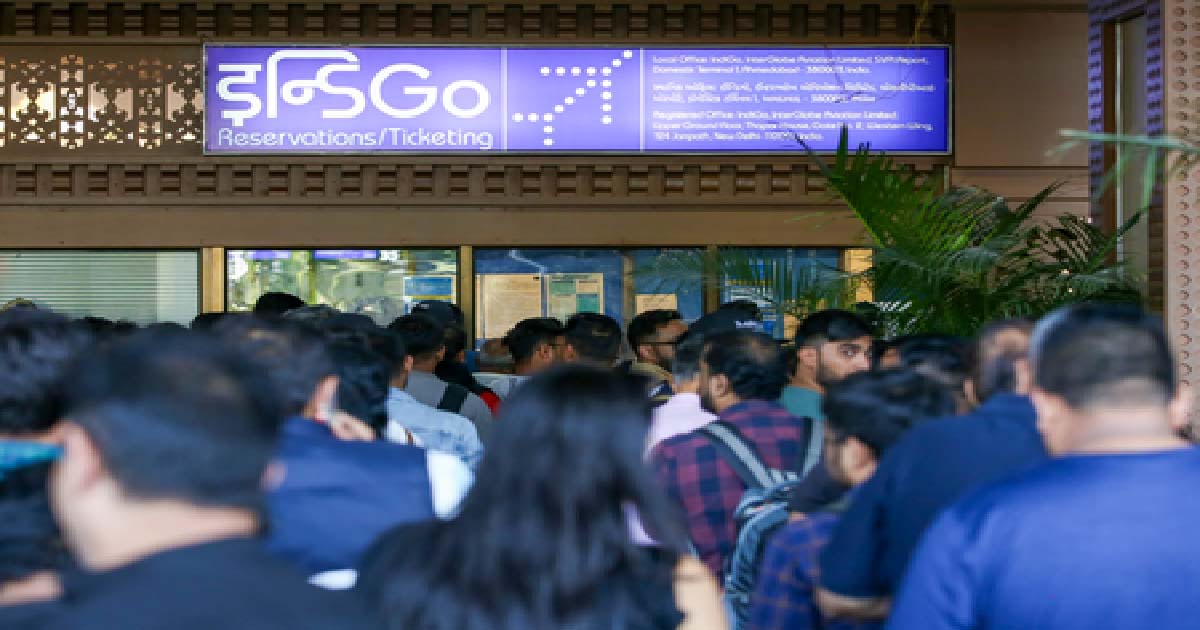Business
Union Budget FY23’s Capex push to boost cement demand

Union budget FY23’s Capex push as well as continued focus on infrastructure development is likely to boost cement demand.
India’s Budget 2022-23 has earmarked a massive budgetary outlay of Rs 7.50 lakh crore for Capex. In her Budget speech to Parliament on Tuesday, Finance Minister Nirmala Sitharaman proposed to increase the capital budget outlay by over 35 per cent.
According to India Ratings and Research (Ind-Ra), the increase in the budgetedACapexAover the revised spending estimate for FY22 is likely to drive infrastructure spending that accounts for around one-fourth of the cement demand.
Besides, the cascading impact it has on the employment generation will aid in demand creation.
“After a 53 per cent increase in the estimated spend in FY22 to revive the urban spending which led to a recovery in the cement demand from the segment, the allocation to the urban infrastructure increased marginally to Rs 635 billion for FY23 from the revised estimate of Rs 619 billion in FY22.”
“Around 100 ‘Gati Shakti’ cargo terminals for multimodal logistics facilities are likely to come up in the next three years.”
As per the agency, the cement demand from the housing segment which constitutes around 65 per cent of the total cement demand is likely to be supported by the government’s continued focus on affordable housing, with the allocation of Rs 480 billion for the completion of 8 million houses under the ‘PMAY’ scheme.
“The allocation is in line with the revised estimate of Rs 478 billion for FY22, up 70 per cent from the budgeted estimate for the year.”
“The housing segment has been a key demand driver in the past few years, with the individual home builder segment displaying a remarkable resilience to the pandemic.”
Business
IndiGo offers travel vouchers worth Rs 10,000 to severely impacted customers

New Delhi, Dec 11: Limping back to normalcy, IndiGo on Thursday offered travel vouchers worth Rs 10,000 to customers who were severely impacted during the flight disruption earlier this month.
The airline “regrettably acknowledged” that several people travelling between December 3 and 5 were stranded for many hours at major airports nationwide. The crisis caused thousands of cancellations and delays, keeping passengers in long queues.
“We will offer travel vouchers worth Rs 10,000 to such severely impacted customers. These travel vouchers can be used for any future IndiGo journey for the next 12 months,” an IndiGo spokesperson said in a statement.
The compensation is in addition to the commitment under the existing government guidelines, as per which, IndiGo will provide compensation of Rs 5000 to Rs 10,000, depending on the block time of the flight, to those customers whose flights were cancelled within 24 hours of departure time.
IndiGo also noted that “all necessary refunds for cancelled flights have been initiated”, including bookings through a travel partner platform.
The airline said that it is “committed” to restoring a “safe, smooth, and reliable” experience.
Earlier in the day, IndiGo Chairman Vikram Singh Mehta said that the airline’s Board will bring in external technical experts to work with the management and identify the root causes behind last week’s massive flight disruptions.
He said the experts will help ensure that such large-scale operational failures never happen again.
Meanwhile, the company stated that all destinations in the airline’s network have been fully connected since December 8, and operations have stabilised since December 9.
On December 8, it flew more than 1,750 flights with just one same-day cancellation, and on December 9, it had over 1,800 flights and zero cancellations. Over 1,900 flights took off on December 10, while just two were cancelled on the same day.
On Thursday, IndiGo said it expects “to operate more than 1,950 flights with approximately 300,000 customers”.
Business
Sensex, Nifty turn volatile at open amid US Fed rate cut

Mumbai, Dec 11: Indian stock markets opened on a volatile note on Thursday, swinging between gains and losses even as the US Federal Reserve announced a 25-basis-point rate cut on Wednesday.
The Sensex, which began the day slightly higher, soon slipped into the red and was trading at 84,312 during early trade, down 79 points or 0.09 per cent. The Nifty also erased its early gains and inched down to 25,750, lower by 8 points or 0.03 per cent.
“From a technical standpoint, Nifty holds immediate support at 25,600–25,650, while the 25,850–25,900 zone continues to act as a strong resistance that has repeatedly halted upward momentum,” analysts said.
“A decisive breakout above this resistance band will be essential to re-establish bullish traction. Conversely, a sustained move below the identified support range may extend the ongoing consolidation phase,” they added.
Infosys, Eternal, Tata Steel, Maruti Suzuki, Adani Ports, HCL Tech, SBI, TCS, L&T, and Tech Mahindra were among the early gainers on the Sensex, rising up to 1.1 per cent. However, Titan, Power Grid, Bharti Airtel, NTPC, Asian Paints, ITC, Reliance Industries, Bajaj Finserv, and ICICI Bank dragged the market with mild losses.
In the broader market, the Nifty MidCap index slipped 0.17 per cent, while the Nifty SmallCap index dropped 0.32 per cent.
Among sectors, IT stocks led the gains, with the Nifty IT index rising 0.70 per cent. This was followed by the Nifty PSU Bank index, which was up 0.65 per cent, the Nifty Metal index up 0.4 per cent, and the Nifty Auto index up 0.12 per cent.
On the other hand, FMCG stocks came under pressure, pushing the Nifty FMCG index down by 0.26 per cent.
Analysts said that domestic markets tracked global cues cautiously as investors assessed the impact of the Fed’s latest rate cut on capital flows and economic growth.
Meanwhile, on the flows front, FIIs offloaded equities worth Rs 1,651 crore on December 10, while DIIs recorded net purchases of more than Rs 3,752 crore.
Business
BSE launches 4 new BSE 100 large-cap TMC universe factor indices

New Delhi, Dec 10: The Bombay Stock Exchange’s (BSE) subsidiary BSE Index Service on Wednesday announced the launch of four new factor Indices from the universe of BSE large-cap total market capitalisation (TMC) index with 5 per cent stock level capping.
The newly introduced indices are BSE large-cap 100 momentum 30, BSE large-cap 100 low volatility 30, BSE large-cap 100 enhanced value 30, and BSE large-cap 100 quality 30.
“BSE Index Services Pvt. Ltd., a wholly owned subsidiary of BSE, today announced the launch of 4 new BSE factor indices from the BSE 100 large cap TMC index as the universe with 5 per cent stock level capping,” the exchange said in a press release.
These Indices are Reconstituted Quarterly, have a base value of 1000, and the first value date is June 20, 2005, along with the additional screening for the liquidity profile, the release added.
BSE large-cap 100 Momentum 30 will track the performance of the 30 companies in the BSE 100 large-cap TMC that exhibit the most persistence in their relative performance, based on their momentum scores. Constituents are weighted based on their momentum score.
BSE large-cap 100 Low Volatility 30 will measure the performance of the 30 least volatile companies in the BSE 100 large-cap TMC. Constituents are weighted by their inverse volatility.
BSE large-cap 100 Enhanced Value 30 measures the performance of the 30 companies in the BSE 100 large-cap TMC with the most attractive valuations, based on their value scores. Constituents are weighted based on their value score.
BSE large-cap 100 Quality 30 measures the performance of the 30 companies in the BSE 100 large-cap TMC that exhibit the most persistence in their relative performance, based on their momentum scores. Constituents are weighted based on their momentum score.
“Building on the success of factor launches on the BSE 500 universe earlier in the year, we are pleased to expand our factor family with the launch of four new factor indices, this time on the large-cap universe,” BSE Index Services Pvt. Ltd MD & CEO Ashutosh Singh said.
“These indices, in the same vein as our BSE 500 universe factor family, will be reset on a quarterly basis with the introduction of an innovative score-based only weighting method,” he added.
The index said that these new indices can be used for running passive strategies such as ETFs and Index Funds.
It can also be used for benchmarking of PMS strategies, MF schemes and fund portfolios. Additionally, investors can now access a broader spectrum of market opportunities, further enriching their investment strategies with this latest addition to BSE’s suite of indices.
-

 Crime3 years ago
Crime3 years agoClass 10 student jumps to death in Jaipur
-

 Maharashtra1 year ago
Maharashtra1 year agoMumbai Local Train Update: Central Railway’s New Timetable Comes Into Effect; Check Full List Of Revised Timings & Stations
-

 Maharashtra1 year ago
Maharashtra1 year agoMumbai To Go Toll-Free Tonight! Maharashtra Govt Announces Complete Toll Waiver For Light Motor Vehicles At All 5 Entry Points Of City
-

 Maharashtra1 year ago
Maharashtra1 year agoFalse photo of Imtiaz Jaleel’s rally, exposing the fooling conspiracy
-

 National News1 year ago
National News1 year agoMinistry of Railways rolls out Special Drive 4.0 with focus on digitisation, cleanliness, inclusiveness and grievance redressal
-

 Maharashtra1 year ago
Maharashtra1 year agoMaharashtra Elections 2024: Mumbai Metro & BEST Services Extended Till Midnight On Voting Day
-

 National News1 year ago
National News1 year agoJ&K: 4 Jawans Killed, 28 Injured After Bus Carrying BSF Personnel For Poll Duty Falls Into Gorge In Budgam; Terrifying Visuals Surface
-

 Crime1 year ago
Crime1 year agoBaba Siddique Murder: Mumbai Police Unable To Get Lawrence Bishnoi Custody Due To Home Ministry Order, Says Report












